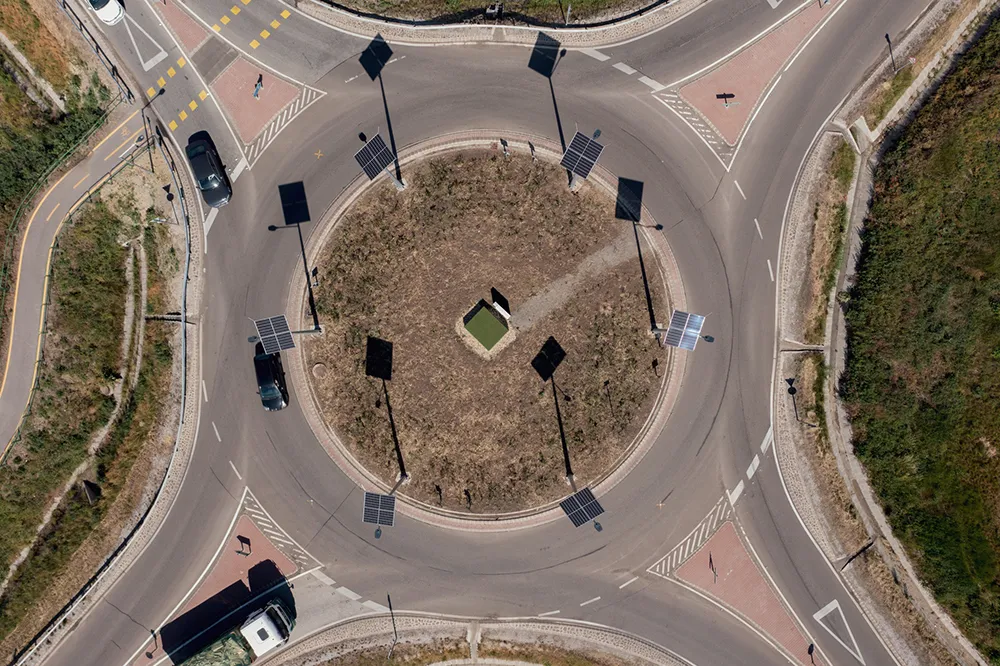According to road safety engineer Alan Vass of the Traffic and Road Safety section of Ayrshire Roads Alliance in Scotland, LED road studs have contributed to a 100 per cent reduction in incidents on a stretch of the A719 road in the county.
Vass says the active studs, which use LED and solar technology to create delineation shown to be far more effective than traditional retro-reflective studs, could hold the key to a brighter future.
He said: “There had been a number of accidents on the A719 near Wat
October 3, 2014
Read time: 2 mins
According to road safety engineer Alan Vass of the Traffic and Road Safety section of Ayrshire Roads Alliance in Scotland, LED road studs have contributed to a 100 per cent reduction in incidents on a stretch of the A719 road in the county.
Vass says the active studs, which use LED and solar technology to create delineation shown to be far more effective than traditional retro-reflective studs, could hold the key to a brighter future.
He said: “There had been a number of accidents on the A719 near Waterside village in Ayrshire and the council wanted to do all they could to address the issue.
“The road is predominantly straight but also has a series of fairly sharp bends and we were keen to enhance safety whilst limiting impact on the environment in a rural area.
“We installed LED active studs and statistics prove we’ve seen dramatic results.
“I think it won’t be long before other authorities look at what East Ayrshire Council has done and realise the technology could have similar positive implications for them.”
Supplied by Rennicks UK, some 180 of the solar-recharged battery-powered SR-15 Active Road Studs were installed, providing bright delineation and advance warning of bends. The units, which contain two bi-directional LEDs, highlight both the horizontal and vertical geometry of the road and help improve visibility of the centre and carriageway edges, while a rumble effect warns drivers who encroach on to the opposite carriageway.
Studies showed four injury accidents on the major semi-rural road in just three years prior to the studs being installed and there have been no reported incidents since.
Vass added: “It’s clear the scheme contributed towards a fantastic reduction in the number of reported injury accidents and the site continues to perform well in all weather conditions.
“The studs remain bright and clearly highlight each lane, enhancing safety by aiding night-time driving and particularly during rainy, snowy or foggy weather.
“Ayrshire Roads Alliance has received very positive feedback from local residents and commuters and the studs will without doubt be considered for future road safety schemes.”
Vass says the active studs, which use LED and solar technology to create delineation shown to be far more effective than traditional retro-reflective studs, could hold the key to a brighter future.
He said: “There had been a number of accidents on the A719 near Waterside village in Ayrshire and the council wanted to do all they could to address the issue.
“The road is predominantly straight but also has a series of fairly sharp bends and we were keen to enhance safety whilst limiting impact on the environment in a rural area.
“We installed LED active studs and statistics prove we’ve seen dramatic results.
“I think it won’t be long before other authorities look at what East Ayrshire Council has done and realise the technology could have similar positive implications for them.”
Supplied by Rennicks UK, some 180 of the solar-recharged battery-powered SR-15 Active Road Studs were installed, providing bright delineation and advance warning of bends. The units, which contain two bi-directional LEDs, highlight both the horizontal and vertical geometry of the road and help improve visibility of the centre and carriageway edges, while a rumble effect warns drivers who encroach on to the opposite carriageway.
Studies showed four injury accidents on the major semi-rural road in just three years prior to the studs being installed and there have been no reported incidents since.
Vass added: “It’s clear the scheme contributed towards a fantastic reduction in the number of reported injury accidents and the site continues to perform well in all weather conditions.
“The studs remain bright and clearly highlight each lane, enhancing safety by aiding night-time driving and particularly during rainy, snowy or foggy weather.
“Ayrshire Roads Alliance has received very positive feedback from local residents and commuters and the studs will without doubt be considered for future road safety schemes.”









